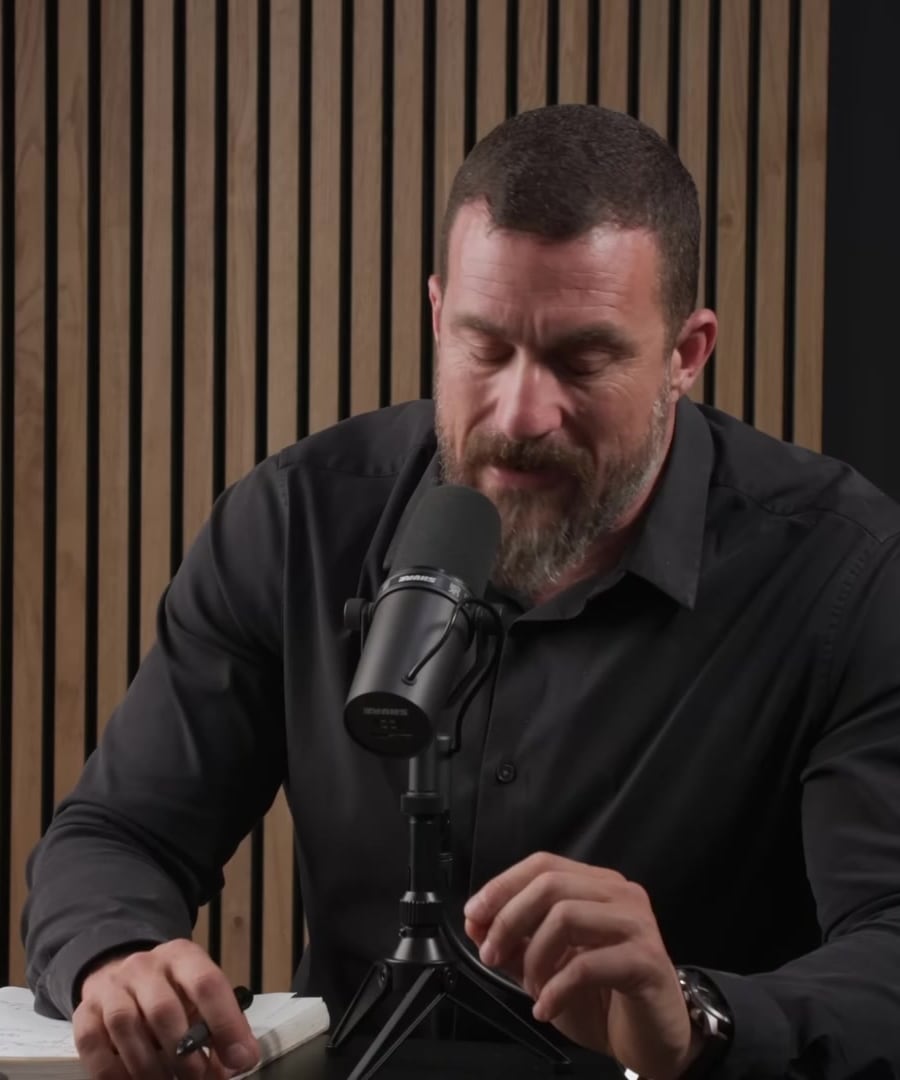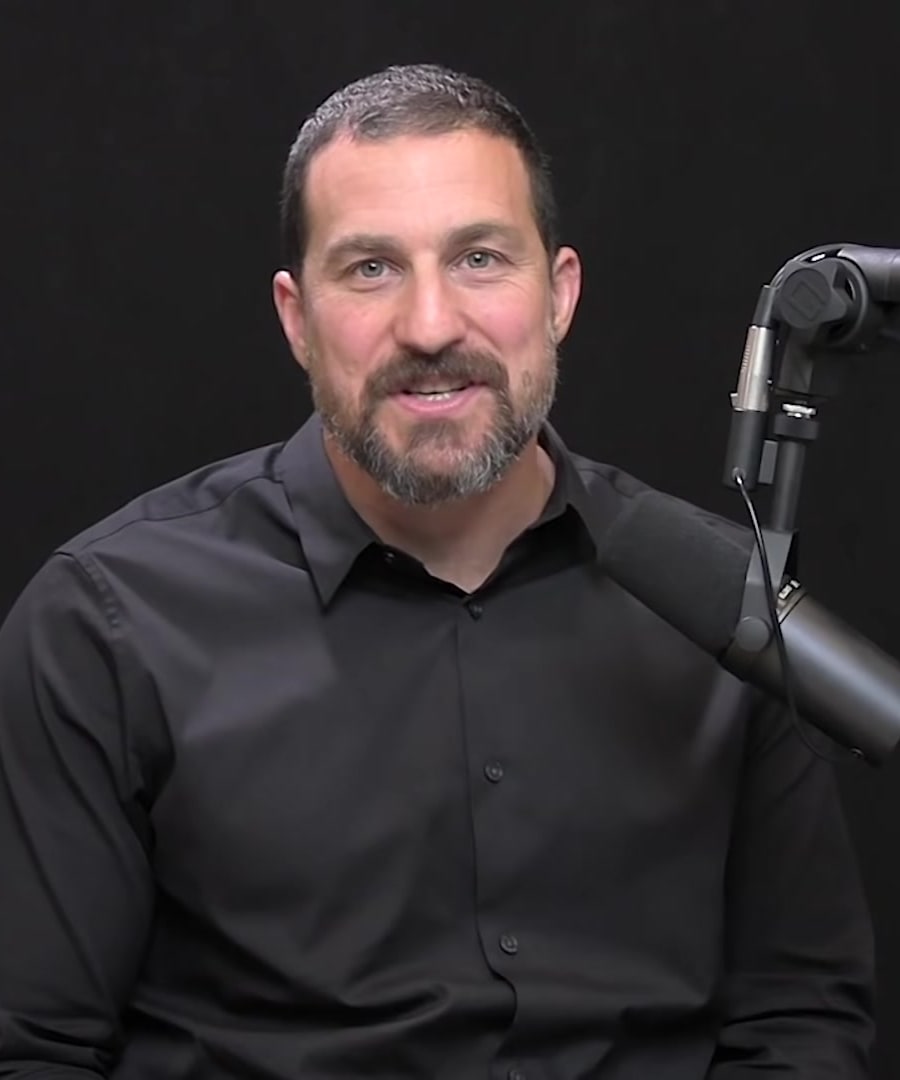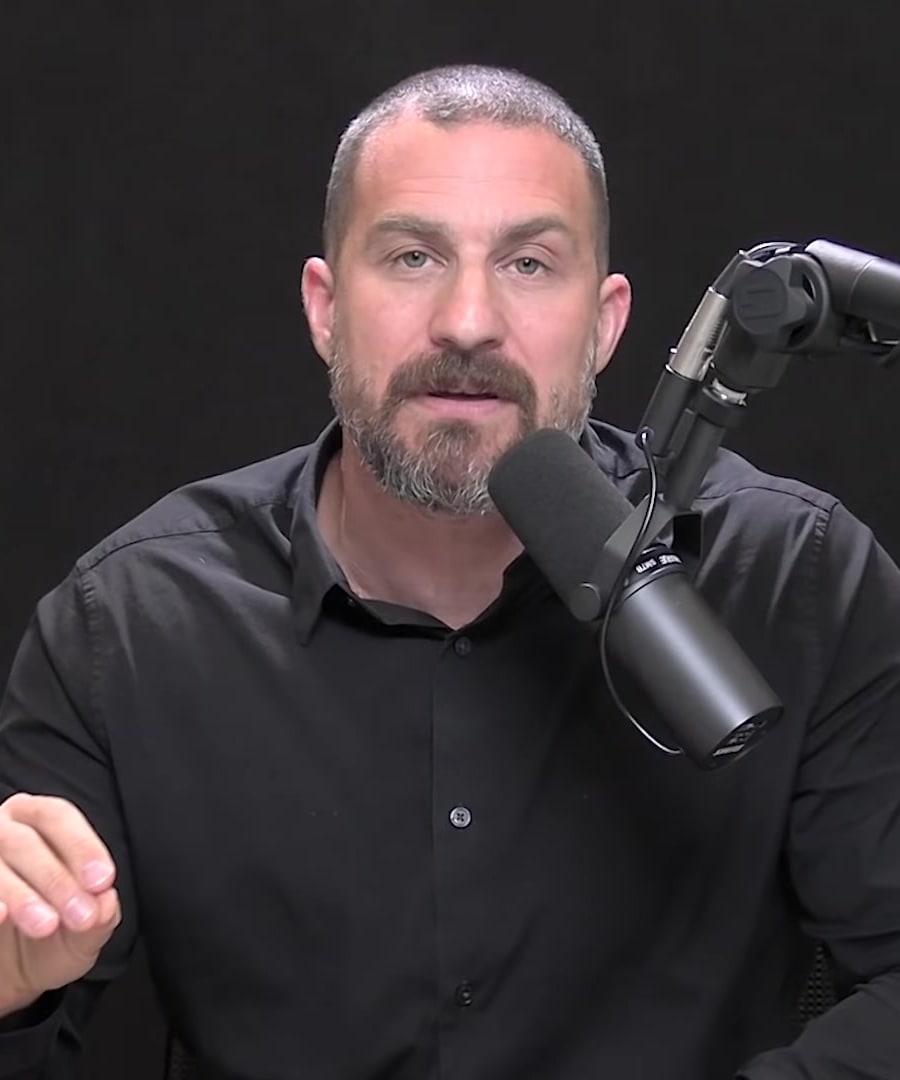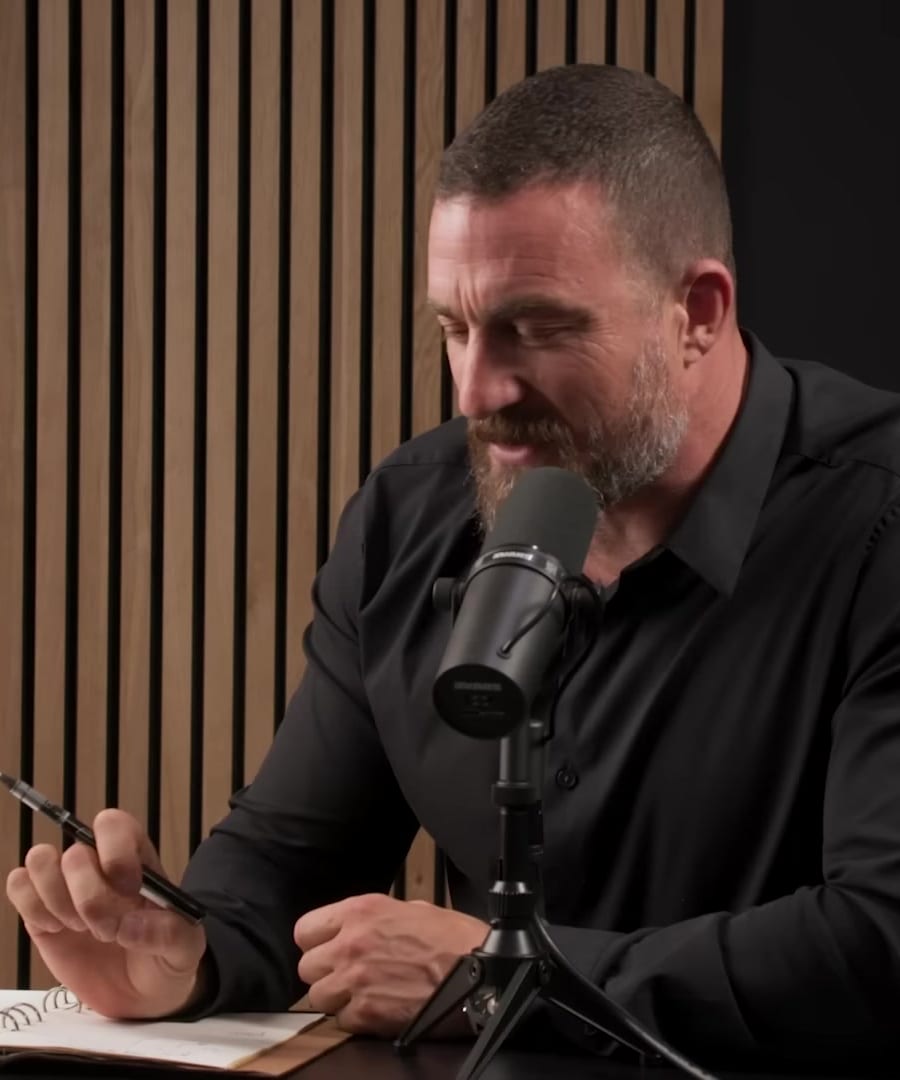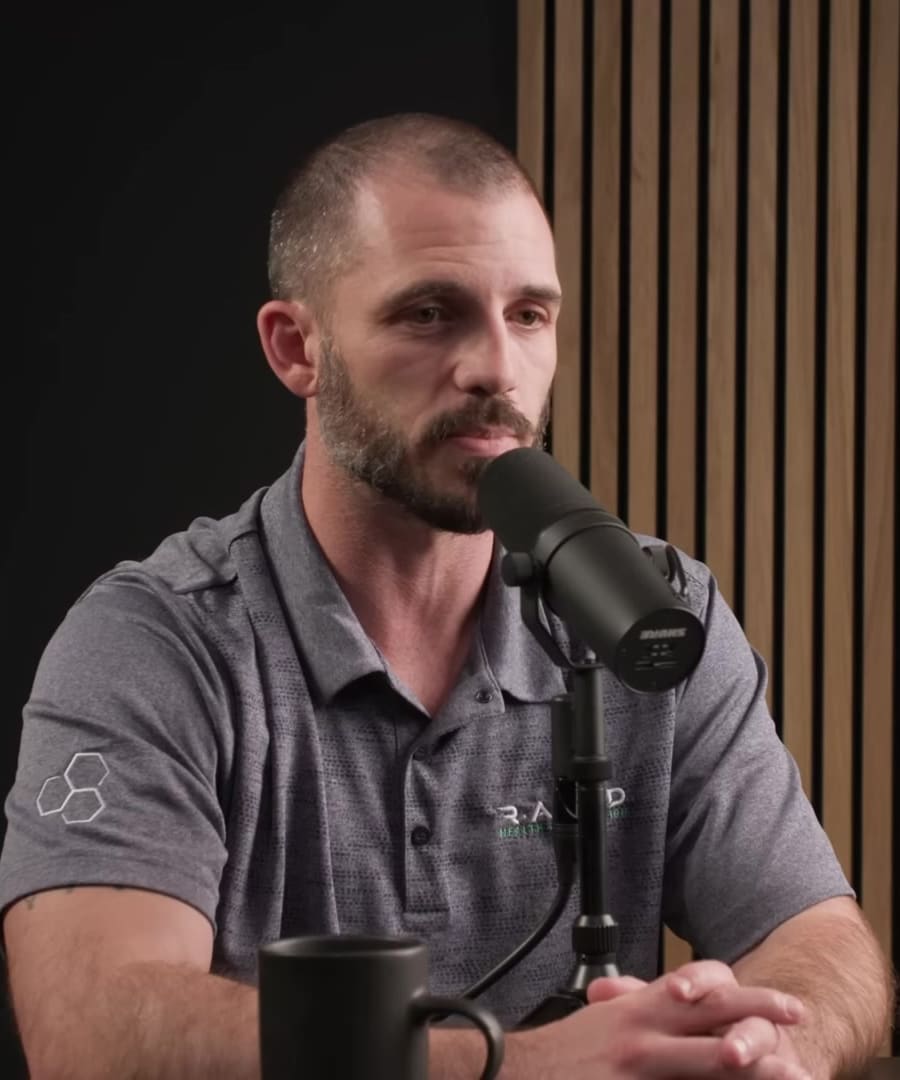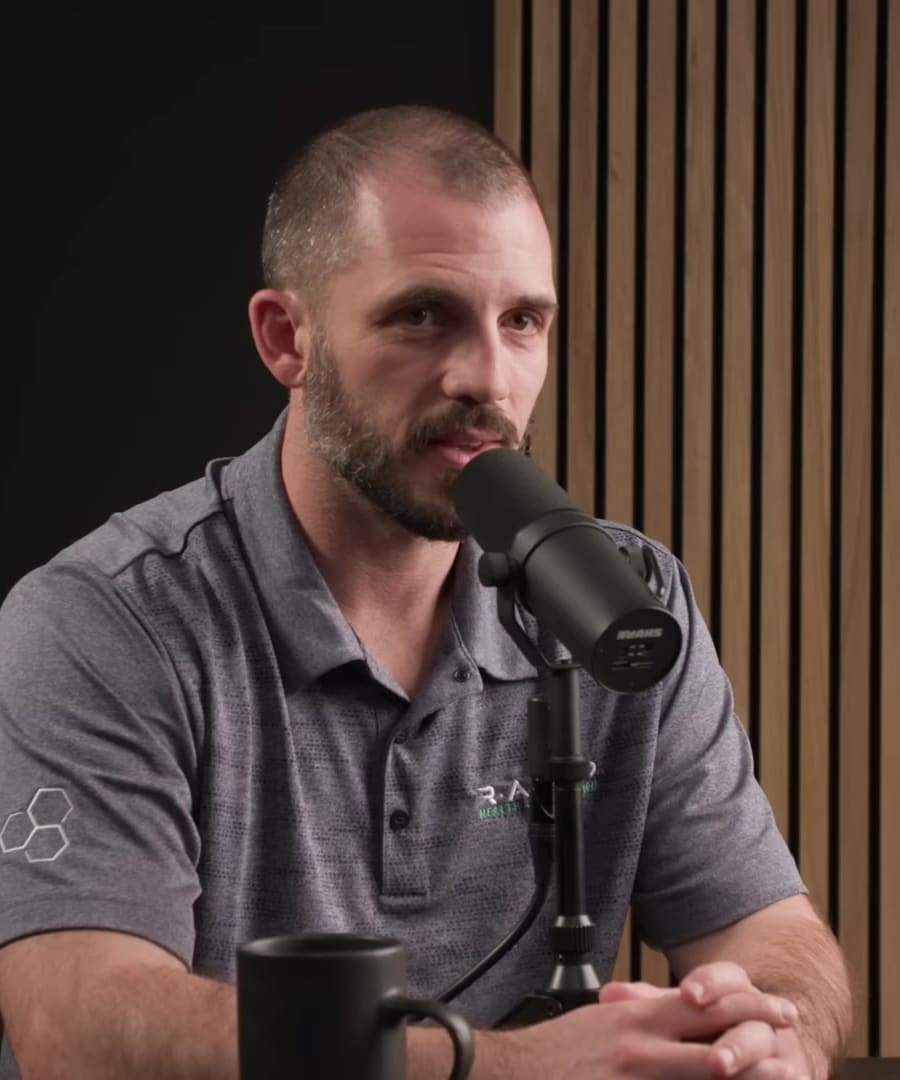what's the Valsalva Technique
Sources:
The Valsalva Technique is a breathing maneuver used to create intra-abdominal pressure and spinal stability during repetitions and work, as discussed by and guest . The main goal is to create a cylinder of pressure around the spine, to regulate blood pressure and spinal stability. It's important to learn how to breathe and brace, which means maintaining spine control while breathing. This takes practice, as it's a skill to develop the necessary abdominal control for stability. They note that care must be taken with blood pressure regulation when using this technique, which ideally would be around 120 over 80 at rest 1.
RELATED QUESTIONShow to fall asleep fast?
Sources:
To fall asleep faster, suggests several techniques and practices you can consider:
- Utilize yoga nidra or meditation to calm the mind and body before bed, setting the stage for quicker sleep onset 1.
- Use supplements like Magnesium Threonate or Magnesium Bisglycinate, which have been found to aid in falling asleep when taken 30 to 60 minutes before bedtime. Other helpful supplements mentioned include apigenin, found in chamomile, and theanine 2.
- Leverage the thermoregulation of your body by taking hot baths, showers, or using a sauna before bed to accelerate the drop in body temperature needed for sleep, making it easier to transition to sleep 3.
- Be mindful of habits before bedtime. Utilizing helpful sleep scripts from apps like Reverie, or no-cost options like NSDR, can also support the falling asleep process 4.
- Consider diet and the timing of your last meal. Eating closer to bedtime can make it harder to fall asleep due to digestion energy requirements. Fasting may increase alertness, so plan your eating schedule accordingly 5.
These practices combine physical, nutritional, and psychological approaches to improve sleep onset and quality. It is always recommended to personalize these suggestions based on what works best for you, and consult with healthcare professionals if you have specific concerns or conditions.
RELATED QUESTIONSwhen to stop drinking before going to sleep?
Sources:
To prevent disrupted sleep, it's advised to avoid alcohol within about 4 to 6 hours before sleep. As has indicated, alcohol, being a REM sleep suppressant, can interfere with sleep stages that are crucial for memory consolidation and overall sleep quality. Failling to metabolize alcohol before sleep can negatively affect sleep stages 1.
Additionally, not only alcohol, but caffeine and liquid intake in general can impact the quality of sleep. suggests avoiding caffeine in the 12 hours prior to sleep to prevent disturbance in the architecture of sleep 2. Even for hydration, it is recommended to reduce fluid intake 3 hours before sleep to prevent waking up at night to urinate 3.
Practice good "sleep hygiene" which includes considering the timing of consumption of different substances and ensure they align with healthy sleep patterns.
RELATED QUESTIONSTips for improving sleep hygiene.
Sources:
Improving sleep hygiene can be approached through multiple strategies, particularly around creating an optimal environment and establishing a healthy routine. Here are some tips discussed on the :
-
Maintain Regular Sleep and Wake Times: Establish a consistent sleep schedule to help regulate your body's internal clock 1.
-
Limit Screen Time Before Bed: Avoid screens and their blue light within a couple of hours before sleep to prevent circadian rhythm disruption 1.
-
Create a Wind-Down Routine: Facilitate a transition to rest by engaging in relaxing activities before bed, like light stretching, meditation, or reading 2.
-
Optimize Bedroom Environment:
-
Control Fluid and Food Intake: Limit fluids in the hours before sleep to reduce nighttime awakenings and avoid large meals right before bedtime 5.
-
Manage Caffeine and Alcohol: Abstain from consuming caffeine late in the day and limit alcohol intake, especially close to sleep time 5.
-
Bed Usage: Use your bed only for sleep and sex to strengthen the association between bed and sleep 6.
These tips embody general principles that can aid in achieving better sleep quality. It is also worth considering a specific toolkit for more tailored sleep-supportive behaviors and potential supplement use 7.
RELATED QUESTIONS-
what's the Valsalva Technique
- RELATED QUESTIONS
how to fall asleep fast?
- RELATED QUESTIONS
when to stop drinking before going to sleep?
- RELATED QUESTIONS
Tips for improving sleep hygiene.
- RELATED QUESTIONS
